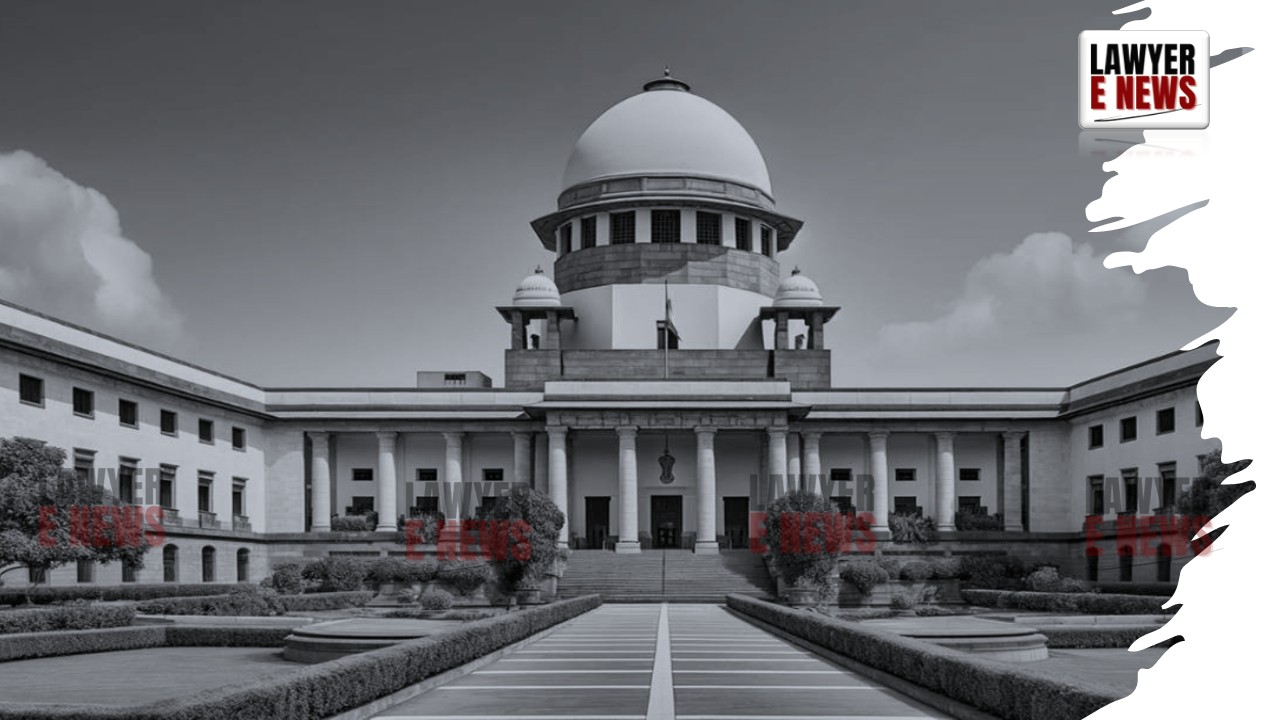-
by sayum
17 February 2026 8:32 AM



"Treating Unproven Defence Documents as Conclusive Would Invert the Order of Criminal Proceedings" - Supreme Court of India reinstating a summoning order issued against one of the accused under Section 306 IPC for abetment of suicide. The bench, comprising Justices Vikram Nath and K.V. Viswanathan, set aside a November 2023 High Court decision that had quashed the summons issued by the Trial Court. The Court held that once live evidence surfaces in trial, the Court has the obligation under Section 319 CrPC to proceed against any person appearing to be guilty, regardless of earlier exoneration by police.
The case arises from a deeply tragic sequence of events involving Dharminder Singh, a young man who had earlier suffered a brutal acid attack on March 13, 2016. On May 10, 2016, he was allegedly subjected to psychological taunting by Respondent No. 2, Varinder Singh, along with others, who confronted him and told him and his family “they should die of shame” for failing to retaliate against the acid attack perpetrators.
After this confrontation, the victim returned home visibly disturbed, locked himself in a room, and later disappeared. His body was recovered from a canal on May 13, 2016. FIR No. 51/2016 was registered against several accused, including Respondent No. 2, for abetment of suicide.
Although the police initially accepted the alibi of Respondent No. 2 and filed a final report under Section 173(2) CrPC classifying him as "innocent," the Trial Court, based on sworn testimony during trial, summoned him under Section 319 CrPC to face trial.
The High Court, however, quashed this order on the ground that the accused had already been found innocent by the police and that his alibi documents were persuasive. This led to the current appeal by the victim’s father.
“Section 319 CrPC is an Exception to the Rule — It Ensures That No Guilty Person Escapes Trial”
The Supreme Court clarified that the object of Section 319 CrPC is to ensure that a trial does not proceed without all participants who, based on evidence during trial, appear to share criminal liability. The Court emphasized:
"Once live evidence evinces a prima facie case stronger than mere suspicion, the Court must act."
Referring to its Constitution Bench ruling in Hardeep Singh v. State of Punjab, the Court reiterated: "The entire effort... is not to allow the real perpetrator of an offence to get away unpunished. This is also a part of fair trial... The legislature thought of incorporating provisions of Section 319 CrPC with the said object in mind."
“Sworn Testimony Under Oath is Substantive Evidence — It Cannot Be Overridden by Police Opinion”
The Trial Court had acted on the testimony of PW-1, the deceased's father, and Jagdev Singh, the uncle, both of whom attributed direct involvement to Respondent No. 2 in the confrontation that preceded the suicide. The Court rejected the High Court’s view that this was merely a repetition of the FIR, stating:
"A first information report is only an initial version; a statement under oath, recorded in Court, is substantive evidence."
It further noted: "It is difficult to conceive of what stronger material could be demanded at the summoning stage short of a confession."
“Alibi is a Defence to Be Proved at Trial, Not at the Summoning Stage”
Respondent No. 2 relied on documents including a parking slip, CCTV footage, and medical records to claim he was at PGI Chandigarh during the time of the alleged incident. The Supreme Court held this material had not been formally proved or tested in cross-examination and could not be relied upon at this stage: "To treat [alibi documents] as conclusive at the threshold would invert the established order of criminal proceedings."
The bench noted that the documents placed Respondent No. 2 in Chandigarh at 6:30 a.m. and 12:09 p.m., while the confrontation occurred around 8:30 a.m. It observed: "A road journey from Jagowal to Chandigarh of roughly ninety kilometres in a private vehicle can comfortably be accomplished within the intervening window."
The Court stressed that abetment to suicide is not an instantaneous act, but a psychological build-up: "Abetment to suicide is not an offence committed at a single moment. It may consist of a build-up of psychological pressure culminating in self-destruction..."
“Investigating Officer’s Opinion Does Not Bind the Court During Trial”
Respondents had argued that the police exonerated Respondent No. 2, and thus summoning him amounted to harassment. The Court firmly rejected this, holding:
"Once cognizance is taken and trial commences, the investigating agency’s view yields to the Court’s independent assessment."
The Court stated that allowing the police’s view to prevent summoning under Section 319 would render the provision “otiose”, adding:
"Section 319 CrPC would be rendered otiose if an Investigating Officer’s earlier opinion could freeze the array of accused for all time."
In a powerful reaffirmation of trial court powers under Section 319 CrPC, the Supreme Court restored the Trial Court’s order dated July 4, 2022, summoning Respondent No. 2 to face trial under Section 306 IPC. It quashed the High Court’s judgment dated November 21, 2023, for having:
"Placed decisive reliance on the investigation dossier and characterised the 10 May 2016 episode as mere ‘teasing’."
The Court observed: "Telling a physically challenged man that he and his family should die... in the aftermath of a grievous acid attack, is not banter."
It concluded that the non-summoning of Respondent No. 2 would risk a truncated trial and a failure of justice, and held: "The Trial Court’s order correctly applied the legal threshold; the High Court’s interference effectively foreclosed the prosecution from testing the alibi."
Date of Decision: May 6, 2025
